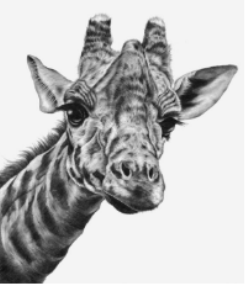This jackal has been elevated into a cultural phenomenon – the so-called cancel culture:
Cancel culture is a phrase contemporary to the late 2010s and early 2020s used to refer to a culture in which those who are deemed to have acted or spoken in an unacceptable manner are ostracized, boycotted, or shunned. (Wikipedia)
The stimulus for cancelling strategies can be a big injustice such as racism, sexual abuse or discrimination or part-taking in wars, spoiling the enviroment and so forth. All of such perceived strategies can lead to a cancelling reaction.

In giraffe we can hear the activity of canceling a person or a group as a request for a change in behaviour, that is put forward with the main feature of a demand: the relationship suffers when you do not fulfill my request.
Respect for the “No” of the actor is unavailable.
The term “Cancel Culture” in turn is critical of such cancelling strategies, that have become a widespread habit among certain groups of people.

With giraffe ears we can hear a request towards such groups of people – mainly identified as leftists for example – to change their behaviour and not to use cancelling strategies. And – as above – this request is also put forward in the guise of a demand – mainly expressing a “I won’t talk to these people anyway, because they are hopeless and lost anyway.”
So both sides in this dilemma are requesting for non-violent ways of relating, for acceptance, inclusion and/or understanding of different views, perhaps.
The dilemma at the core of this jackal “cancel” may thus be the question of how to make requests for change in a non-violent way, when you are in the most intense pain yourself.
So it is also about how to relate to our own deeply unfulfilled needs when faced with deep injustice and pain and how to provide our-selves with enough self-empathy, in order to stay in a consciousness of interdependence or to recover it, when we have lost this.
This is a work of stretching and working with our inner reactivity in intense situations.
One way to approach this can be the awareness, that all human emotions and actions are in principle laid out in each and every one of us. So – when you think – “I would never do such a thing.” – try to ask yourself: “Are you really sure?“
To murder another person may not be something you can imagine yourself doing, as your life may be far from raising conditions in which this becomes possible. And that holds for all activities that we deem out of order in a major way. But in the end, if we look deeper, we can maybe see that as humans we are capable of committing acts of unspeakable horror.
From that vantage point, I can sense that my attitude softens in some way and I get more space to be present to myself and others.
And cancelling may appear a little bit like murdering to me – along with a sadness, that I contributed to making thing worse, rather than better, by being aware only of my side of things and acting quite blindly to cancel another person or group.
David Packman – a progressive media person – talks about being cancelled by his own audience from the left political spectrum, after he called the Hamas attacks on Israel in October 2023 “terrorist attacks”.
The people “cancelling” him may have been unable to hear the jackal “terrorist” and they may have had a request for David Packman to see the good reasons behind the terror attacks – but the way they make the request, as can be seen in the following short clip, does not lead David Packman to change his behaviour. On the contrary.
So the cancel strategy shows itself as a tragic expression of unfulfilled needs.
Seeing the clip I feel some vulnerability in David Packman when talking about this. He is unable to give empathy to the other side, as I see it. His last example – where a person doubles up his support for his channel – I hear as an attempt to fill his own need for appreciation and understanding and support.
The clip inspired me to have a closer look at the jackal “cancel”.

So in essense as giraffe I might ask:
Can we have more understanding and care for ourselves, when our needs are deeply unfulfilled in matters that we care most about in this life? Can we hold our unfulfilled needs with more care – before going out and trying to relate to others?
